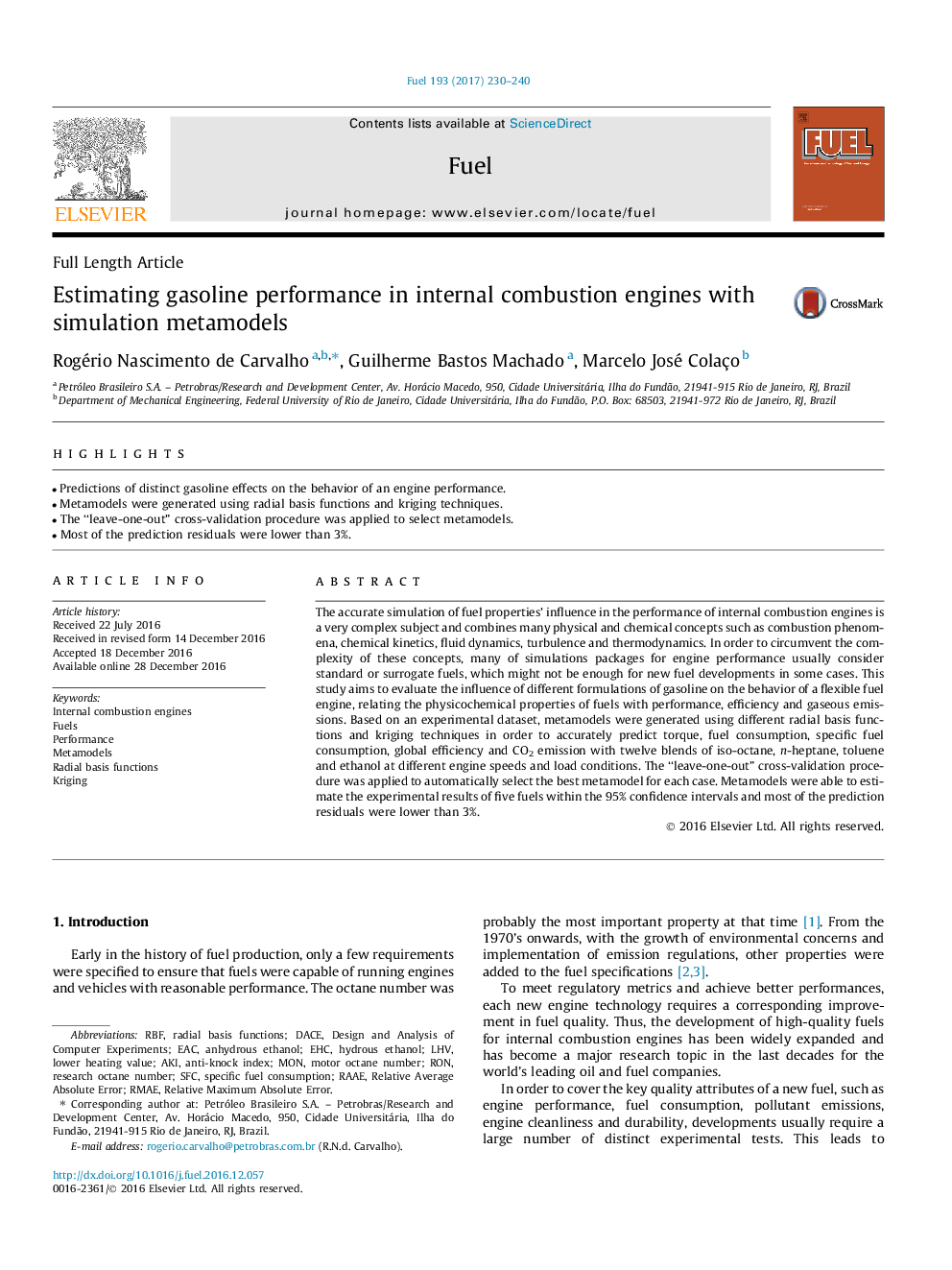| کد مقاله | کد نشریه | سال انتشار | مقاله انگلیسی | نسخه تمام متن |
|---|---|---|---|---|
| 6474928 | 1424971 | 2017 | 11 صفحه PDF | دانلود رایگان |
- Predictions of distinct gasoline effects on the behavior of an engine performance.
- Metamodels were generated using radial basis functions and kriging techniques.
- The “leave-one-out” cross-validation procedure was applied to select metamodels.
- Most of the prediction residuals were lower than 3%.
The accurate simulation of fuel properties' influence in the performance of internal combustion engines is a very complex subject and combines many physical and chemical concepts such as combustion phenomena, chemical kinetics, fluid dynamics, turbulence and thermodynamics. In order to circumvent the complexity of these concepts, many of simulations packages for engine performance usually consider standard or surrogate fuels, which might not be enough for new fuel developments in some cases. This study aims to evaluate the influence of different formulations of gasoline on the behavior of a flexible fuel engine, relating the physicochemical properties of fuels with performance, efficiency and gaseous emissions. Based on an experimental dataset, metamodels were generated using different radial basis functions and kriging techniques in order to accurately predict torque, fuel consumption, specific fuel consumption, global efficiency and CO2 emission with twelve blends of iso-octane, n-heptane, toluene and ethanol at different engine speeds and load conditions. The “leave-one-out” cross-validation procedure was applied to automatically select the best metamodel for each case. Metamodels were able to estimate the experimental results of five fuels within the 95% confidence intervals and most of the prediction residuals were lower than 3%.
Journal: Fuel - Volume 193, 1 April 2017, Pages 230-240
